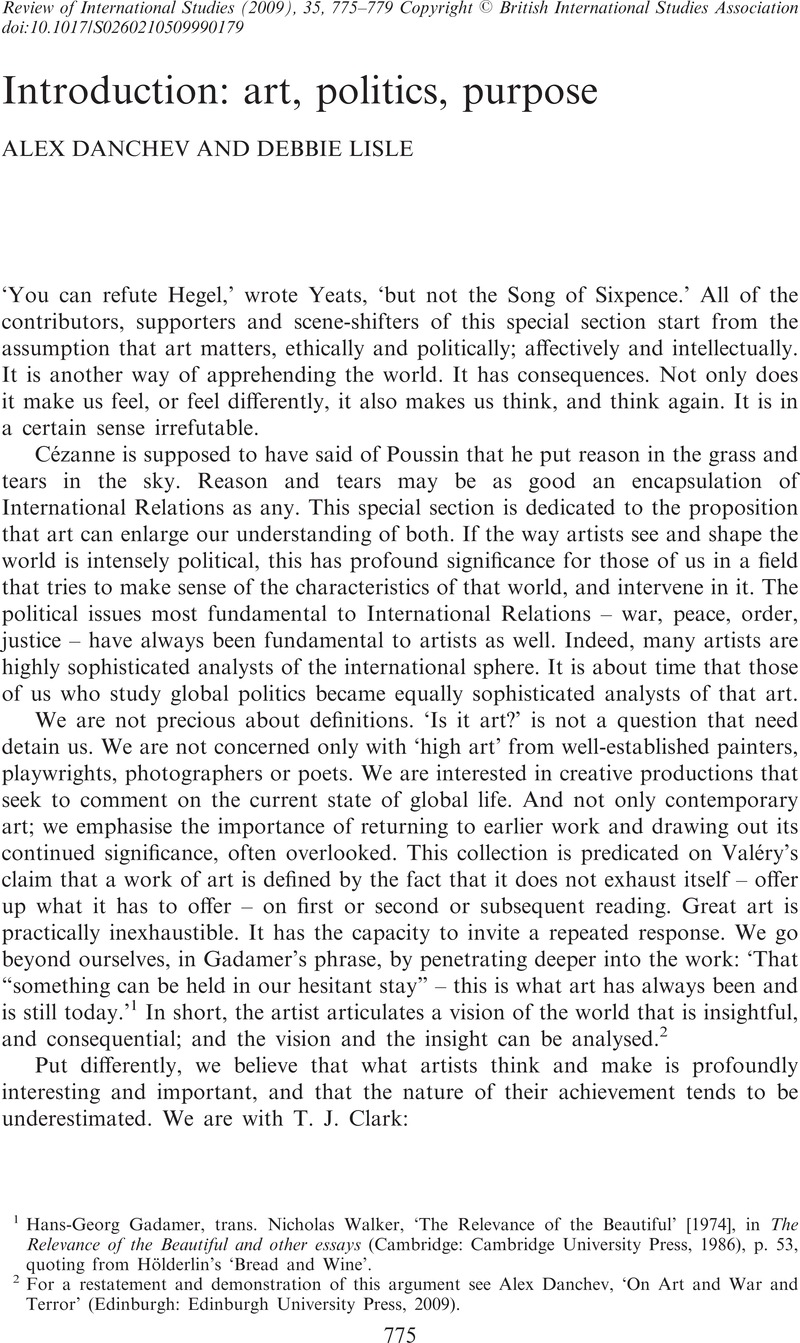Article contents
Introduction: art, politics, purpose
Published online by Cambridge University Press: 28 October 2009
Abstract

- Type
- Research Article
- Information
- Copyright
- Copyright © British International Studies Association 2009
References
1 Hans-Georg Gadamer, trans. Nicholas Walker, ‘The Relevance of the Beautiful’ [1974], in The Relevance of the Beautiful and other essays (Cambridge: Cambridge University Press, 1986), p. 53, quoting from Hölderlin's ‘Bread and Wine’.
2 For a restatement and demonstration of this argument see Alex Danchev, ‘On Art and War and Terror’ (Edinburgh: Edinburgh University Press, 2009).
3 T. J. Clark, The Sight of Death (London: Yale, 2006), p. 150.
4 Wendy Brown, ‘Regulating Aversion: Tolerance in the Age of Identity and Empire’ (Princeton: Princeton University Press, 2008).
5 Important special issues that engage with art, culture, creativity and imagination include ‘Poetic World Politics’, Alternatives, 25:3 (2000); ‘Art and Politics’, Alternatives, 31:1 (2006); ‘Nuclear Stories: Cold War Literatures’, Cultural Politics, 4(3) (2008); ‘Images and Narratives of World Politics’, Millennium, 30:3 (2001); ‘Between Fear and Wonder: International Politics, Representation and the Sublime’, Millennium, 34:3 (2006); ‘Securitization, Militarization and Visual Culture in the Worlds of Post-9/11’, Security Dialogue 38:2 (2007); and ‘Painting Politics’, Social Alternatives, 20:4 (2001).
6 Interview with Simone Téry [1945], in Dore Ashton (ed.), Picasso on Art (New York: Viking, 1972), p. 149.
7 Virginia Woolf, ‘The Art of Biography’, in Collected Essays (London: Hogarth, 1967), vol. IV, p. 228.
8 Martha Nussbaum, ‘Introduction: Form and Content, Philosophy and Literature’, in Love's Knowledge (New York: Oxford University Press, 1990), p. 15.
9 Barnett Newman, unpublished review of Thomas B. Hess, Abstract Painting (1951), in Selected Writings and Interviews (Berkeley: University of California Press, 1990), pp. 121–22.
10 W. H. Auden, Introduction to Poems of Freedom [1938], in Edward Mendelson (ed.), The English Auden (London: Faber, 1986), pp. 371–72, quoting from Shakespeare's Othello.
- 31
- Cited by


